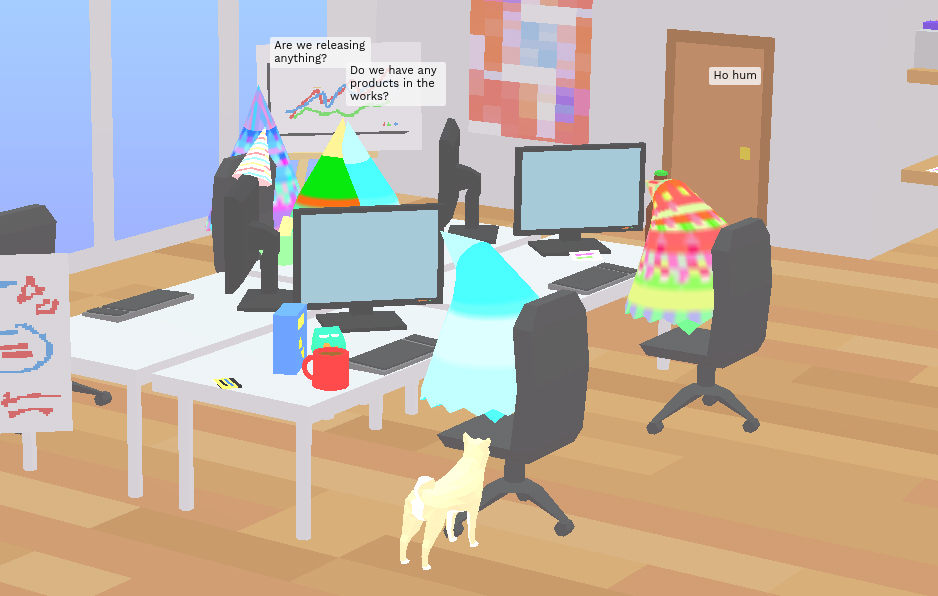"The Founder": a video game that explores the politics of digital start-ups
Gameplay from "The Founder"
The gamers among you may remember Sim City - a game where you were the mayoral manager of a whole city, responsible for all its departments. One of the notorious aspects of Sim City were the baked-in assumptions about human behaviour and economics. When you, as Mayor, increased the tax take in any particular area, that area would usually begin to fall into disrepair, or lose its population.
At the very least - particularly within a recent political environment in the UK when tax takes are creeping up across the parties - this is an arguable equation. Further versions of the Sim world - notably SimCity Societies from 2007 - tried to allow gameplayers to build cities according to different worldviews (eg, fun, contemplative, capitalist, romantic, authoritarian). But while sophisticated and interesting, it didn't catch on.
However, from Monopoly onwards - not originally a celebration of capitalism but a critique of it - we've allowed games into our lives that teach us about the economic systems we're living in. Here's another great example, reports The New Inquiry, called The Founder (download here). An excerpt:
IF Silicon Valley could dream, it would dream in video games. Those unconscious desires, the real libidinal images of the innovating classes—and not the avowed “dreams” of giving girls good STEM educations or blockchain-driven voting platforms—would probably look a lot like Francis Tseng’s dystopian business simulator The Founder.
“Disrupt the world,” instructs the game’s loading page. And if you manipulate your employees right, you can. Grow from a tiny start-up in a cozy Cambridge apartment in 2001 to a global megacorp producing hardware and software for the entertainment, military, biotech, and finance industries.
The Founder is a management sim à la Sim City, and play involves running your office, managing employees, massaging your corporate reputation, and keeping up hectic product schedules. The main activity of the game is to make as many products as possible while increasing employee productivity, and, of course, cutting costs.
With every hire, you play an interview minigame. But rather than trying to determine your new employee’s qualifications, you use their social media profile to anticipate what excites them about working for you. If they’re concerned with social justice, you emphasize how your product will change the world for the better, for example—and the more you butter them up, the lower the salary you can offer them. But you can also drive down wages by filling the office with perks—microbrews, artisanal catering, coffee—that require only a one-time investment.

